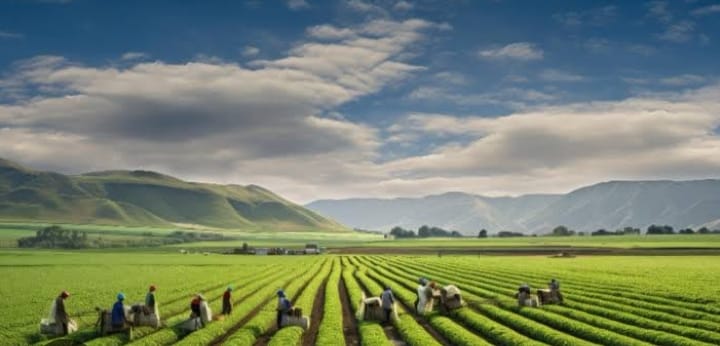Kabiru Haruna
Agritourism, a burgeoning industry, combines tourism and agriculture to promote sustainable practices, support local economies, and foster global understanding.
This innovative approach bridges the gap between urban and rural communities, supporting local economies and promoting sustainable practices.
Agritourism involves visiting and participating in agricultural activities, such as farm-based activities, rural experiences, and educational components.
These may include farm tours and workshops, crop harvesting and planting, livestock management, wine and cheese production, and organic farming practices.
Agritourism offers numerous benefits, including supporting local economies and rural development, promoting sustainable agriculture and environmental conservation, preserving cultural heritage and traditional practices, providing educational experiences for visitors, and enhancing community engagement and social connections.
The industry encompasses various forms, including farm tourism, rural tourism, ecotourism, agro-tourism, and sustainable tourism. Each type caters to diverse interests and promotes unique aspects of agricultural tourism.
Successful agritourism initiatives can be found globally, such as visiting a vineyard in Tuscany, Italy, participating in a coffee farm tour in Colombia, staying at a farm stay in rural New Zealand, learning about organic farming in California, USA, and exploring rural villages in Japan’s countryside.
Agritourism plays a vital role in ensuring global food security by promoting sustainable agriculture practices, supporting local food systems, and enhancing community engagement.
Additionally, it fosters multilateral business growth by connecting local farmers with global markets and promoting cross-cultural understanding.
Despite its potential, agritourism faces challenges such as infrastructure development, marketing, and policy support. However, these challenges also present opportunities for innovation, collaboration, and growth.
Agritourism is an emerging industry with vast potential for promoting sustainable agriculture, supporting local economies, and fostering global understanding. As the world seeks innovative solutions to food security and economic growth, agritourism offers a promising path forward.
